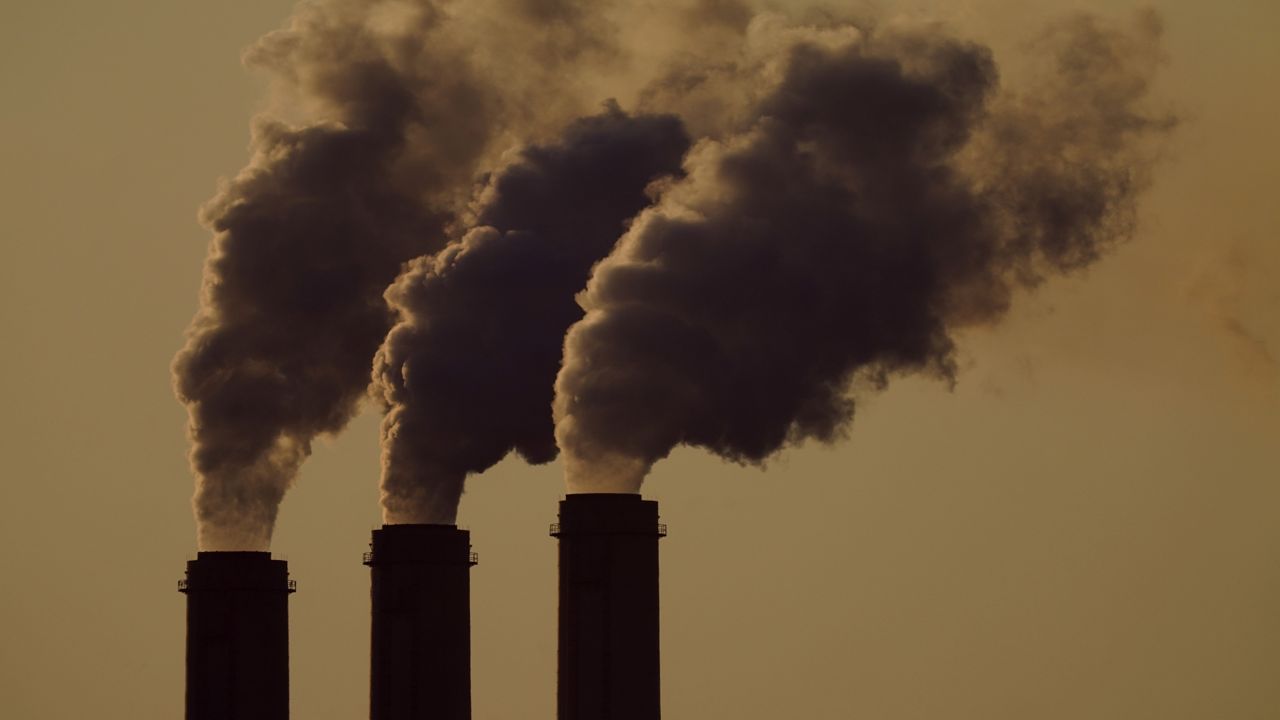A preliminary study released by the Rhodium Group on Monday found that greenhouse gas emissions increased in 2021 compared to the year prior, likely associated with an economic rebound as the COVID-19 pandemic headed into its second year.
According to Rhodium Group, an independent research firm, greenhouse gas emissions in the United States were up 6.2% in 2021 compared to 2020, although they remained 5% lower than emissions in 2019.
The study attributes the increase to a number of factors, one of which was the rebound in the transportation sector as the economy began to reopen. The biggest increase in emissions came from transportation, particularly as demand for consumer goods increased and passenger travel experienced a “modest recovery,” per the study.
As road travel increased in 2021 – up 54.6% in April alone of last year compared to the same month in 2020, per the Department of Transportation – so too did demand for gasoline, which had increased by 10% at the end of 2021 compared to 2020.
Road travel was the only mode of transportation that rebounded beyond 2019 levels, the study found. Demand for customer goods, as well as the need to drive vaccine appointments, attributed to an aggregate increase in diesel demand of .4% in 2021 compared to 2019.
The U.S. also saw a sharp rise in coal generation last year, marking the “first annual increase in coal generation since 2014,” per data from the U.S. Energy Information Administration.
While the overall emissions remain below that of 2019, the uptick in puts the U.S. “further off track to meeting its Paris Agreement target,” the study’s authors wrote in part. Under the agreement, the U.S. pledged to cut emissions – by at least half of the 2005 levels – by 2030.
At the end of 2020, the U.S. had reduced emissions by 22.2%; by the end of 2021, that amount decreased to a 17.4% reduction.
The study’s authors contend that “joint accelerated action by Congress, the federal executive branch, and leading states can put the 2030 target within reach, but all must act quickly in order to put the US on track.”
Still, President Joe Biden faces a steep path to achieve the ambitious goal of slashing planet-warming greenhouse gas emissions in half by 2030, as legislative gridlock has stalled his proposed $2 trillion package of social and environmental initiatives.
Biden’s Build Back Better plan contains $550 billion in spending and tax credits aimed at promoting clean energy, and it would also bolster family services, health care and other programs.
“I think the U.S. has a lot of tools and a lot of options to make gains on climate in the next decade,″ said John Larsen, an energy systems expert and partner at the Rhodium Group.
“Build Back Better is helpful” to meet Biden’s goals, “but if you don’t have Build Back Better, that doesn’t mean nothing happens,″ Larsen said. “It just makes the task ahead a bit more challenging.″
Larsen is co-author of a Rhodium Group study last fall that found that passage of the Build Back Better package, along with the bipartisan infrastructure law and regulations by key federal agencies and states, could cut U.S. greenhouse gas emissions by 45% to 51% below 2005 levels in 2030.
The Biden bill offers incentives for electric car purchases, development of technology to capture and store carbon emissions, and construction of wind and solar farms, among other provisions.
The Associated Press contributed to this report.
